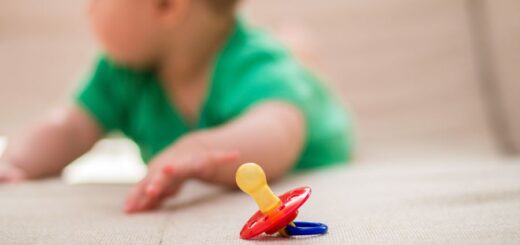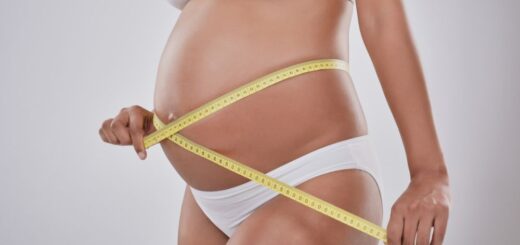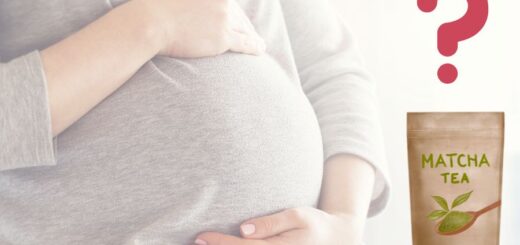How to eat while breastfeeding?
Hello, the baby is here! With the happiness of a mother, especially with the first child, many questions and uncertainties arise. Breastfeeding and the nutrition that goes with it is a headache for many new mothers. In the following article you will find out everything you need to know about proper nutrition during breastfeeding, which foods you should better avoid and which components of breast milk your child needs in particular. The birth marathon is over and a completely new chapter in life begins: The first hours and days after the birth are very exciting for mother and child! First-time mothers in particular have dozens of questions about how to deal with their baby and sometimes feel a bit unsafe and overwhelmed – after all, you don’t want to go wrong! For a successful start in life, how to eat while breastfeeding, what can I drink … The two of them begin to form a close bond and the baby will reflexively seek the breast to eat the first meal. Mothers also answer the questions! Let’s learn together
So-called colostrum has already formed in the breasts in the weeks before the birth. Like mature milk, it consists of over 200 components. In the first two to three days after birth, the offspring mainly receives proteins and vitamins. The foremilk is yellow and thick. This milk is low in energy and easy to digest, making it ideal for a newborn’s stomach. In addition, the colostrum conveys antibodies that are supposed to immunize the baby against pathogens. During this time it is normal for the newborn to lose some weight. After the first few days, the breast milk changes: for around two weeks, the mammary gland produces a transitional milk that contains more carbohydrates and fats. The milk is more filling and the child gradually gains weight. After this phase, mature breast milk is produced. The composition of milk also changes during breastfeeding. First of all, it is rather liquid and low in fat and thus quenches your child’s thirst (front milk). After two to three minutes, the consistency becomes thicker and more nutritious. The main or hind milk is full of energy and filling.
How to eat food while breastfeeding?
In order for the mother’s milk to develop its full effect and to supply the baby with all essential vitamins and minerals, it is important that the mother eats a balanced and healthy diet. During breastfeeding, the energy requirement is increased by 500 to 650 kilocalories. Radical diets straight after pregnancy are not very useful and can have a negative impact on the composition of breast milk. However, this does not mean that the additional calories should be consumed with cake and the like. During breastfeeding you should especially like healthy products
- vegetables
- fruit
- whole grain products
- Dairy products
- some meat
- fatty sea fish (salmon, herring)
- complete oils (linseed oil, olive oil)
come on the plate. Fruit and vegetables provide mother and child with the vitamins they need. Whole grain products such as bread, pasta or brown rice are long-lasting and contain fiber. Dairy products such as cheese, yoghurt or cow’s milk provide protein, as do lean meat. Fish should be on the menu at least once a week – it is rich in healthy fats and these support the child’s development.
Food to avoid while breastfeeding
Since the mother’s diet has a direct impact on the child, there are a few things you should avoid while breastfeeding. That includes smoking. Most women stop smoking when they want to have children, at the latest when they become pregnant, and this should continue until the end of the breastfeeding period. If you are unable to completely quit smoking, you should keep it to a minimum and only smoke immediately after breastfeeding, so that the toxins are reduced by the baby’s next meal. However, doctors recommend breastfeeding even to mothers who smoke – the positive effects on child development and mother-child bond predominate. You should also continue to avoid alcohol during breastfeeding. However, there is little objection to a glass of sparkling wine on a festive occasion. But even here you should make sure to take a longer break from breastfeeding after consumption so that the body can break down the substance and only small amounts pass into breast milk. There is nothing wrong with breastfeeding mothers against a cup of coffee in the morning. However, coffee and black tea or energy drinks should not be consumed in excess. The caffeine passes into breast milk and can cause discomfort in the baby.
Medication during breastfeeding
Especially when the mother has health problems, she reacts with uncertainty. The belief that no medication is allowed to be taken while breastfeeding has established itself in people’s minds. There is now a medication for almost every condition that is compatible with breastfeeding. The attending physician can advise and prescribe a suitable remedy in the event of uncertainty. The active ingredients usually only get into breast milk in such low concentrations that the offspring will not notice it. Untreated diseases can do a lot more damage. Of course, this is not a free ticket for pills during breastfeeding: It is of course better to cure the symptoms with alternative healing methods and home remedies. If you have a fever, calf compresses or quark compresses help, and if you have a cold, inhaling can clear your nose. But if you experience severe pain or serious discomfort, reaching into your medicine cabinet is not the end of the world. Ibuprofen, for example, is a harmless solution for pain. If you have any doubts, your family doctor or pediatrician can also help you over the phone.
Allergies and intolerances in children?
Various allergens or food components can have negative effects on the child. If you notice indigestion in your baby after consuming a certain product or food, you can first do without the supposed trigger and observe whether the symptoms improve. Again and again there are foods like
- Cabbage
- Onions
- garlic
- Citrus fruits
- Cow’s milk or
- Strawberries
suspected of causing allergies and indigestion in babies. Avoiding these foods as a preventive measure, however, is not necessary and would encourage a one-sided diet. If the suspicion of an intolerance or allergy is confirmed, you should visit the pediatrician and have the symptoms clarified. A diet should never be started on your own.
Effects on the baby: abdominal pain and gas
If toxins or pollutants get into breast milk via the nutritional cycle and are passed on to the child during breastfeeding, more or less pronounced symptoms can occur. Some children become restless and whimpered, others get stomach pain, diarrhea, or vomit. The effects vary from child to child. If the symptoms are difficult and cannot be brought under control on your own, the pediatrician is the right contact. He will examine the child and ask the mother questions about breastfeeding behavior and diet. If necessary, he will take a closer look at the baby’s breast milk or blood and, if necessary, initiate appropriate therapy. However, this is the exception. In most cases, children tolerate their mother’s milk very well and can have a carefree start in life.
Our previous article How often should i pump to increase milk supply? We also recommend that you read our article.

Hello, I’m Dorothy. I love writing and researching articles. Reading books about baby health, care and pregnancy is my favorite. I will be sharing delicious and healthy information on food and baby food during pregnancy.












1 Response
[…] You also may like the article – How to eat while breastfeeding? […]